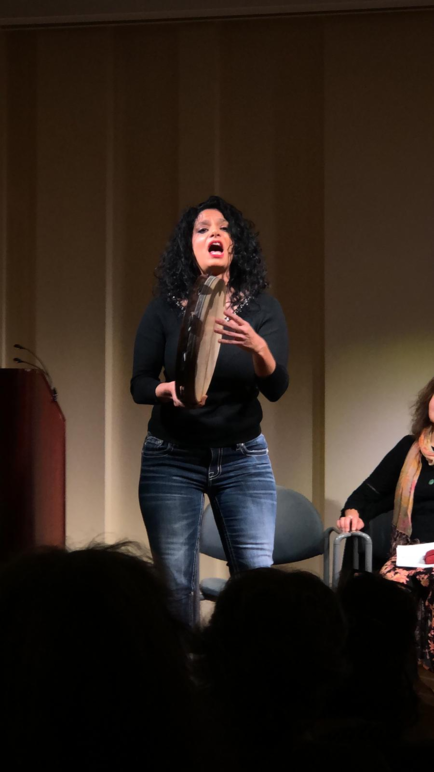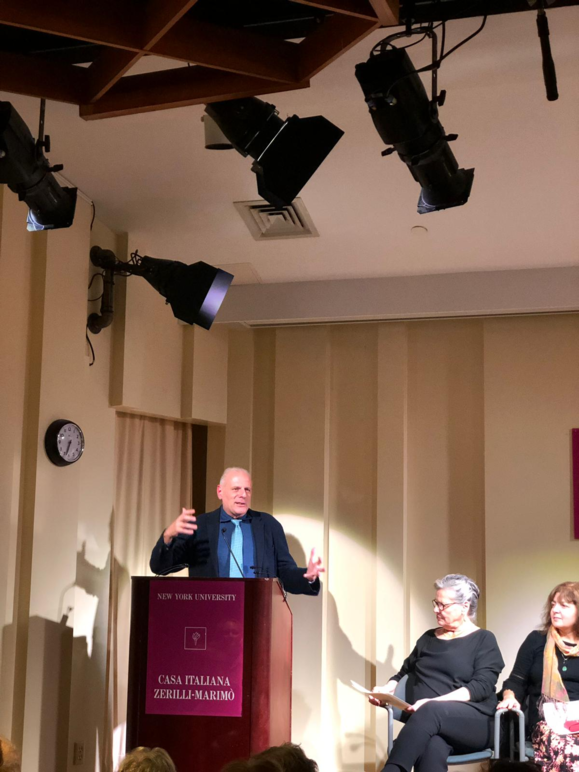Us Italian American Women, Torn Between Two Worlds
The vibrant notes of the Calabrese ballad “Cioparella Bella,” sung by singer and dancer Michela Musolino, opened the reading of “When I am Italian” by Joanna Clapps Herman at New York University’s Casa Italiana Zerilli-Marimò.
A song about love, family, pain and loss that brings the audience directly into the new book written by Herman, the Italian American (though she herself does not approve of the term because “that’s not how we called ourselves”) author of “The Anarchist Bastard: Growing Up Italian in America” and “No Longer and Not Yet: Stories”.
Joining her onstage, her friends and collegues - her sisters as she called them - four other incredible writers. Strong, brilliant, for the most part Italian American women, who participated by reading excerpts from the book. Starting from the question “What does it mean to be Italian?,” Edvige Giunta, Nancy Carnevale, Maria Laurino and Mary Ann Carolan moved the audience with passages from Joanna’s book, which they presented along with their own reflections, sharing what they found resonated not only with their own personal experiences but with those of everyone who has ever found themselves torn between two worlds.
Joanna recalled how, as she was writing the book, she often asked herself: “Up to what point can a person born outside of Italy be considered Italian?”
With amiability and simplicity, Joanna transports us into her life, telling us about her immigrant grandparents, who arrived in the United States in the early 1900s. A tale that takes us from her childhood in rural Connecticut with her extended Italian family and into the fabled Italy of which she had always heard so much about from her grandparents.
A journey she undertook alongside her sister Maria, who sat front row at the event. In their youth, they decided to embark in this exciting adventure to learn more about their family, who came from Basilicata through Turin. After a long and somewhat perilious drive through the southern countryside, they finally met their Italian uncle, introducing themselves as “the daughters of the daughter of your sister Lucia.”
Joanna’s is therefore the tale of a woman who’s gestures, whose language and whose memories are characterized by her belonging to another land.
An Italian identity which she herself considers was not just inherited but chosen. An identity which belongs to all those who feel like they belong to two worlds. An identity which lies in part in blood, in part in nostalgia, and in part in experience. An identity that is both fixed and fluid.
For more info and to purchase the book click here.





































i-Italy
Facebook
Google+
This work may not be reproduced, in whole or in part, without prior written permission.
Questo lavoro non può essere riprodotto, in tutto o in parte, senza permesso scritto.